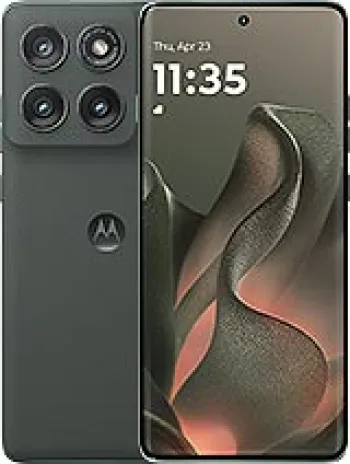
Overview of Motorola W377
The Motorola W377 was a feature phone that catered to the needs of basic mobile users in the late 2000s. Announced in October 2007, this device carried the classic Motorola design in a compact and affordable package. Although the phone was eventually cancelled, the planned specifications indicate its aim to offer straightforward functionality with minimal complexities.
Network and Connectivity
The Motorola W377 supported GSM technology, specifically operating on GSM 900 / 1800 / 1900 2G bands. This allowed users to roam across many countries that supported these frequency bands. Class 8 GPRS was available, offering limited data connectivity suitable for basic internet access, but without EDGE support.
Design and Build
The device was designed to be compact and easy to carry, measuring 99 x 45 x 18.6 mm and weighing just 95 grams. This size and weight made it comfortable in day-to-day handling. It featured a classic clamshell design, a popular choice during its time for enhancing protection of the display and reducing accidental dialing. The phone supported a Mini-SIM card.
Display Quality
The Motorola W377 sported a 1.8-inch TFT display capable of showing 65K colors. The resolution was 128 x 160 pixels, equating to a density of approximately 114 ppi. Despite its small size by today's standards, it was quite adequate for the time, primarily used for viewing contact lists, sending messages, and making phone calls.
Memory and Storage
Internally, the Motorola W377 offered 10MB of storage, a limitation characteristic of feature phones. Given the absence of an external card slot, storage expansion was not an option. Users could store up to 500 contacts in the phonebook and retain lists of recent call logs including 10 dialed, 10 received, and 10 missed calls.
Camera
The W377 was equipped with a single VGA camera at 0.3 MP, primarily suitable for capturing simple snapshots at basic quality. Advancements in mobile photography had not yet reached feature phones like this, so the camera's functionality was rudimentary without support for video recording.
Audio and Multimedia
The device supported several alert types including vibration and downloadable polyphonic or MP3 ringtones. While it lacked a 3.5mm audio jack, a loudspeaker was integrated for hands-free audio playback. Moreover, it included an FM radio feature, offering on-the-go entertainment without data consumption.
Communication and Additional Features
Connectivity options were basic, with Bluetooth support available for file transfers and connectivity with compatible devices. It did not, however, feature WLAN or GPS. Messaging capabilities included SMS, EMS, and MMS, providing simple multimedia messaging options. The built-in WAP 2.0/xHTML browser offered limited internet browsing. A small selection of games accompanied the basic entertainment suite, though it did not support Java-based applications.
Battery Performance
Equipped with a removable Li-Ion battery, the Motorola W377 promised a standby time of up to 250 hours and a talk time of approximately 7 hours and 30 minutes. This battery life was considered satisfactory for users who primarily needed calling and messaging functionalities without extensive use of power-draining applications.
Color Variants and Pricing
Despite its cancelled release, the phone was announced in three color options: Cannon Gray, Lustrous Silver, and Mandarin Orange. Its projected price was around 70 EUR, which positioned it as an affordable choice in the market for users seeking dependable but modest mobile technology.
Conclusion
The Motorola W377 epitomized the traditional feature phone, offering basic communication tools in a compact and user-friendly design. While it may have lacked advanced functionalities, it was intended to suit individuals who valued simplicity and reliability—showcasing a snapshot of the mobile technology era just before the ubiquity of smartphones.
Key Features of Motorola W377
- GSM network technology with tri-band support (GSM 900/1800/1900)
- Compact and lightweight design (99 x 45 x 18.6 mm, 73 cc, 95 g)
- TFT display with 65K colors, 1.8 inches
- Bluetooth connectivity
- FM radio
- Supports SMS, EMS, and MMS messaging
- Removable Li-Ion battery with up to 250 hours standby time and 7 hours 30 minutes talk time
- Available in multiple colors: Cannon Gray, Lustrous Silver, Mandarin Orange
Disadvantages of Motorola W377
- Lacks EDGE for higher-speed data connectivity
- Cancelled status, not released to market
- No expandable memory card slot; limited to 10MB internal storage
- Basic VGA main camera with no video recording capability
- No 3.5mm headphone jack
- No WLAN or GPS for advanced connectivity and navigation
- No Selfie camera
- Lacks Java support for enhanced applications and games
- Very basic display with low resolution and limited color depth (65K colors)

View Also
More Phones
All Rights Reserved +14266 Phones © Mobilawy 2025

























